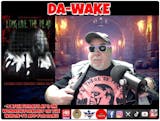Canadian John F. Bassett was an important figure in the world of sports in North America, particularly in the area of so-called rebel leagues, from the early 1970s until his passing in 1986.
The gifted athlete
In his younger days, he was an exceptional athlete. In 1955, at the age of 15, he won the Canadian Open Junior Doubles Championship. In 1959, he reached the second round of the U.S. National Championships in singles. In college, he not only played tennis but squash, football, and hockey. The latter two he would become involved in later in life as a team owner.
The son of Canadian media mogul John W.H. Bassett, John F. began his professional career as a reporter for a paper in British Columbia before joining his father’s Toronto Telegram. He soon developed an interest in movie production and broadcasting, forming companies centered on both.
Team owner
In 1973, he became a sports franchise owner when he joined a consortium, along with 26 others, to purchase the faltering Ottawa Nationals of the then-new World Hockey Association (WHA), a league that began in 1972 as a rival to the established National Hockey League (NHL). Before the 1973 WHA playoffs, the team was moved to Toronto and renamed the Ontario Nationals. At the beginning of the following season, they were known as the Toronto Toros.
It was around this time that a man named Gary Davidson, who had co-founded the WHA, as well as the rebel American Basketball Association (ABA) in 1967, began signing up prospective owners for a new football league to challenge the National Football League (NFL). Bassett signed on and established the Toronto Northmen.
The big move
On March 31, 1974, Bassett shocked the pro football world when he signed three players from the Super Bowl champion Miami Dolphins, Larry Csonka, Paul Warfield, and Jim Kiick, to contracts collectively worth $3 million. Unfortunately, the players wouldn’t be available until the WFL’s second season in 1975. A few weeks later came bad news: the Canadian government, in an attempt to protect the Canadian Football League (CFL), passed legislation forbidding any U.S.-based football league from operating in Canada. Bassett moved the team to Memphis and renamed them the Southmen.
Even without Csonka, Warfield, and Kiick, the Southmen had a very successful inaugural season, both on the field and at the gate. They compiled a 17 and 3 record and averaged over 20,000 fans a game.
Most of the rest of the WFL, however, was a mess. Missed payrolls, franchise relocations, and inflated attendance figures plagued the league and damaged its credibility. It tried to reorganize in 1975 but only made it through 12 games of a 20-game schedule before folding.
While the WFL was generally a laughing stock, Bassett, nonetheless, commanded respect. After the WFL collapsed, he tried getting the Southmen into the NFL (along with the Birmingham Vulcans). At first, the older league would have none of it. However, at Bassett’s behest, NFL commissioner Pete Rozelle agreed to put the idea to the owners for an up-or-down vote which, of course, went against the former WFL teams.
Back on the hockey front
Meanwhile, the Toros embarked on their worst season ever, finishing the 1975-76 campaign with a league-worst 24-52-5 record. It was their second season playing in Maple Leaf Gardens and their NHL landlords were less than welcoming, imposing ridiculous restrictions and fees on the Toros. In the fall of 1976, Bassett moved the team to Birmingham, Alabama, and renamed them the Bulls.
The Bulls were competitive, though combative, on the ice, and drew well in Birmingham. However, they were not part of the WHA/NHL merger in 1979, being left out of the deal along with the Cincinnati Stingers. The Bulls played a season and a half in the minor league Central Hockey League before dissolving in 1981.
Another rebel league
In 1982, Bassett was invited to join a new venture called the United States Football League (USFL). Reluctant to join a third rebel league, he finally decided to sign-up when he realized that, unlike the WFL and WHA, he would not be one of the wealthiest owners in the league, ultimately putting less pressure on his wallet.
Created by a man named David Dixon, the USFL was designed to overcome the failings of previous rebel leagues. Dixon sought owners with enough money to sustain early, heavy losses, while also having the discipline to not overspend. Bassett, who had learned a great deal from his time in the WHA and WFL, was a perfect candidate. He established the Tampa Bay Bandits and began building one of the league’s strongest teams.
“I picked the stadium, got the investors, named the team, picked the colors, hired the coach, got us the players," he told reporters at the time, adding, “we’ve been very conservative. Because nobody’s going to be a bigger loser if this league doesn’t work than me. I’m going to look like the biggest jerk in America having done it twice.”
Like the Southmen in the WFL, the Bandits were solid on the field and at the gate. They had a winning record in all three of the USFL’s seasons and made the playoffs twice, regularly drawing over 40,000 fans a game.
Battling other team owners
However, many owners in the league did not stick to the Dixon Plan. In the league’s second season, a New York real estate magnate named Donald Trump took over the New Jersey Generals franchise. He soon started insisting the league move to a fall schedule and take on the NFL. It was all a ploy, though. The real goal was to force a merger in which at least a few USFL teams, including the Generals, would join the NFL.
Bassett would have none of it. He stood firm on the USFL remaining a spring league. He even threatened to withdraw the Bandits from the USFL and start a new spring football league. Trump and Bassett battled back and forth, but the future president of the United States finally got his way. During the spring vs. fall schedule debate, Trump never openly criticized Bassett, making the Canadian businessman one of the few people to escape Trump’s direct wrath. Bassett still felt Trump was behaving poorly, though, and stated such in a letter (below) sent around the time the real estate mogul started hammering for the move to fall.

Bassett had run his team responsibly and stuck to the Dixon Plan. However, many of the owners, particularly those who had not run their teams efficiently, saw Trump's plan as the only chance to recoup their massive losses. Also, Bassett had been diagnosed with a brain tumor early in 1985 and, with his health failing, was eventually unable to muster resistance to Trump’s plan.
The legacy
He sold the Bandits after the 1985 season and the new ownership pressed ahead with the rest of the league and the planned move to fall as well as a lawsuit against the NFL. The USFL won the suit but was famously awarded only $3 in damages. There never was fall season for the league.
In the world of rebel leagues, many of the owners get little respect, and in most cases, rightly so. However, John Bassett is remembered as a dedicated visionary who really deserved better than to be mixed up with the often-mismanaged leagues he found himself in. In 2010, he was elected as an inaugural inductee into the WHA in the Builders category. If such a facility was ever to be created for the WFL or the USFL, Bassett would certainly be one of the first to be honored.



